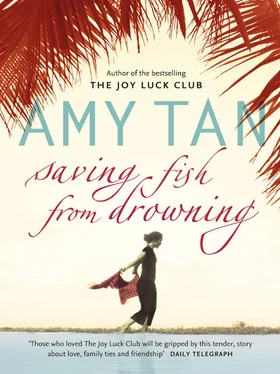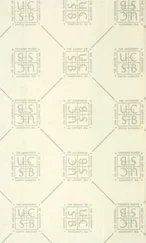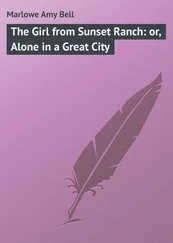“To better times ahead.”
“Much better.”
Dwight immediately suggested they vote in democratic fashion whether to leave Lijiang the next day so they might get an earlier start on Burma. When he called for the yea votes, the only holdouts were Bennie, Vera, and Esmé.
Bennie was understandably concerned about an early departure. If they left early, he would be the one scrambling to patch in a new itinerary. A day in the border town of Ruili and then three extra days in Burma—what would they do? But he said nothing in casting his nay, not wishing to come across as inadequate. He should have realized that the democratic process has no place on travel tours. Once you are a tour leader, absolute rule is the only way to go.
Vera tried to exercise her executive veto. She was used to working in an organization in which she was the top boss. As a born leader, she demanded consensus, and through her unilateral decisions, and her famous eye-locking gaze, she attained it. But here in China she was one of the masses. When the votes were called for, she appealed to the group’s rationality. “Fiddle-dee-dee. I don’t believe for a second that the chief has the clout to bar us from other places. Think about it. Is he able to get on the Internet and e-mail his cronies in a hundred places? Of course not.”
“He had a cell phone,” Moff reminded her.
“I doubt he’s going to waste his precious cell phone minutes to complain about us. He was just spouting off— not that he didn’t have every right to be infuriated.” She cocked one eye and looked toward Harry, Dwight, Moff, and Rupert.
She then switched to sentimentality. “As you all recall, this tour was lovingly designed by my dear friend Bibi Chen, carefully put together as an educational and inspirational journey. If we leave now like scared little mice, we will miss out on some of the greatest adventures of our lives. We wouldn’t get to feel the spray of the magnificent waterfalls at the bottom of Tiger Leaping Gorge.…”
Esmé’s mouth rounded. They were supposed to go there?
“We would be forgoing a ride on a horse with Tibetan nationals in Yak Meadow.…”
That caught Roxanne’s and Heidi’s attention; they had each owned a pony when they were little girls.
Vera went on: “When in this lifetime will you have another chance to see an alpine meadow at seventeen thousand feet? Extremely rare.” She nodded solemnly in agreement with herself. “As are those murals of Guan Yin in the sixteenth-century temple …”
Poor Vera, she almost had them convinced, until she mentioned the murals. Goddesses may have been Vera’s niche in art history, but the mention of Guan Yin made others twitch with anxiety. Another temple? No, no more temples, please. Vera poked at the schedule, which she held up as if it were the Declaration of Independence. “This is what I signed up for. This is what I paid for. This is what I intend to do. I vote nay and I urge the rest of you to reconsider.” She sat down.
Esmé also voted nay, with a slightly lifted hand.
Vera gestured to Esmé to get everybody’s attention. “Another nay.”
When asked to explain her vote, Esmé shrugged. She couldn’t say. The truth was, she had fallen tragically in love. The Shih Tzu puppy had grown weak. When it tried to walk, it stumbled and fell. It would not eat the offerings of Chinese food given by the beauties. Esmé had also noted a lump protruding from its belly. The pup’s caretakers seemed unconcerned by its worsening condition. The lump, they said, was nothing, and one of them pointed to her own chin to suggest that the problem was no more serious than a pimple. “No worries,” they assured Esmé, thinking she was bargaining them down. “You pay less money. One hundred kwai okay.”
“You don’t understand. I can’t take the puppy. I’m traveling.”
“Take, take,” they countered. “Eighty kwai.”
Now, during the vote, Esmé could only sit grimly, chest tight to keep from crying. She could not explain any of this, especially not in front of Rupert, who rolled his eyes and groaned whenever someone referred to them collectively as “the two kids.” He never said anything to her, even when forced to sit next to her, just kept his nose buried in his paperback. Besides, who among these grown-ups cared if a puppy died? “It’s only a dog,” they would say. “Some people have it even worse.” She had heard that excuse so many times it made her puke. They weren’t really concerned about people, just their stupid trip, whether they would get their money’s worth in this dumb country or that dumb country. She couldn’t talk to her mother about any of this. Her mother still called her “Wawa,” a Chinese nickname for “baby.” Wawa , the sound of a crying doll. She hated being called that. “Wawa, what color scarf should I wear?” her mother had said in a girly voice that morning. “Wawa, does my tummy stick out?” “Do you think I look better, Wawa, with my hair up or down?” She was the wawa, so goo-goo stupid over that hairy -armed Hahr-ry Bailley. Couldn’t she see what a big phony he was?
Dwight asked if anyone had anything to add before they officially closed the vote. I was yelling as loudly as I could. Stop! Stop! How can you possibly leave China early? It was utterly mad. Had they known I was there, I could have shown them why it was ridiculous to even think of leaving. I had planned the itinerary carefully, explicitly, so that they might have a taste of the finest, so they could be like “dragonflies skimming the waters.” Now they wouldn’t even touch the surface.
The gnarled pine, I would have said, touch it. That is China. Horticulturalists from around the world have come to study it. Yet no one has ever been able to explain why it grows like a corkscrew, just as no one can adequately explain China. But like that tree, there it is, old, resilient, and oddly magnificent. Within that tree are the elements in nature that have inspired Chinese artists for centuries: gesture over geometry, subtlety over symmetry, constant flow over static form.
And the temples, walk in and touch them. That is China. Don’t merely stare at those murals and statues. Fly up to the crossbeams, get down on your hands and knees, and press your head to the floor tiles. Hide behind that pillar and come eye to eye with its flecks of paint. Imagine that you are an interior decorator who is a thousand years in age. Start with a bit of Tibetan Buddhism, add a smidgen of Indian Buddhism, a dab of Han Buddhism, plus a dash each of animism and Taoism. A hodgepodge, you say? No, what is in those temples is an amalgam that is pure Chinese, a lovely shabby elegance, a glorious messy motley that makes China infinitely intriguing. Nothing is ever completely thrown away and replaced. If one period of influence falls out of favor, it is patched over. The old views still exist, one chipped layer beneath, ready to pop through with the slightest abrasion.
That is the Chinese aesthetic and also its spirit. Those are the traces that have affected all who have traversed along China’s roads. But if you leave too soon, those subtleties will be lost on you. You will see only what the brochures promise you will see, the newly painted palaces. You will enter Burma thinking that when you cross the border, you leave China behind. And you could not be more wrong. You will still see the traces of tribal tenacity, the contradictory streaks of obedience and rebellion, not to mention the curses and charms.
But it was decided. “Nine votes yea, three votes nay,” Dwight announced. “Let’s raise another toast: To Burma!”
DINNER WAS SERVED, “A Taste of Winter Delicacies,” with dishes I had sampled on a previous tour and selected as a sensual experience for the palate. Unfortunately, the restaurant owner made a few substitutions, since I was not there to make any objections.
Читать дальше












